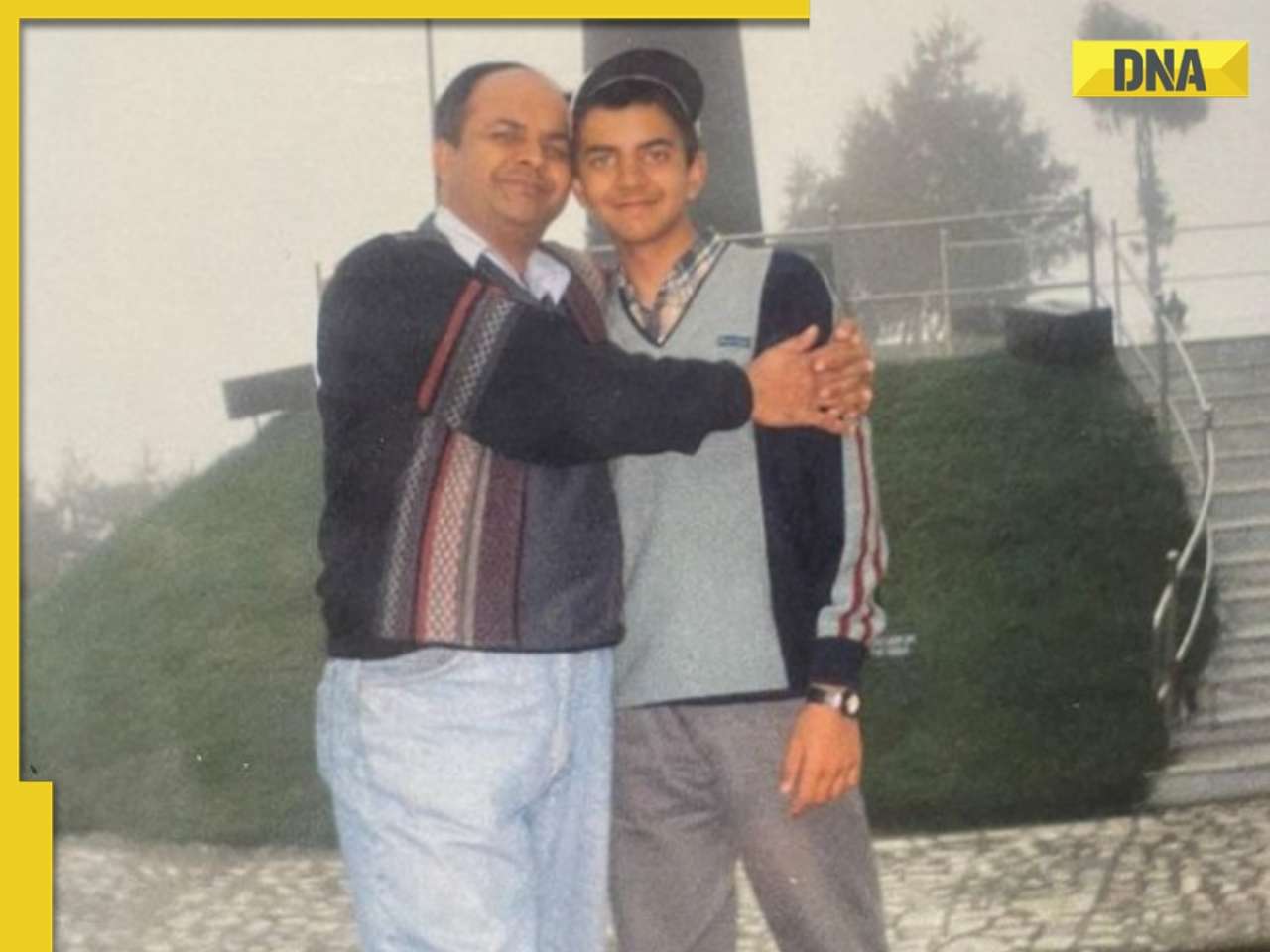US-led forces had captured a senior Hezbollah militant who confessed to training Iraqi extremists in Iran to carry out attacks in Iraq.
BAGHDAD: The US military on Monday accused Iranian special forces of using Lebanese Shiite Hezbollah militiamen for training Iraqi extremists and of planning an attack that killed five US soldiers this year.
Brigadier General Kevin Bergner told reporters that US-led forces had captured a senior Hezbollah militant who confessed to training Iraqi extremists in Iran to carry out attacks in Iraq.
Ali Musa Daqduq, a Lebanese whose real name is Hamid Mohammed Jabur al-Lami, is a senior figure in Hezbollah and was captured in Iraq's southern city of Basra on March 20, Bergner said.
"In 2005 he was directed by senior Lebanese Hezbollah leadership to go to Iran and work with the Quds force to train Iraqi extremists," Bergner said.
He said the Quds force, a unit of the Iranian Revolutionary Guards, and Hezbollah were jointly operating camps near Tehran in which they trained Iraqi fighters before sending them back to Iraq to wage attacks.
"He was directed by the Iranian Quds force to move Iraqis in and out of Iraq and report on the training and operations of Iraqi special groups."
Bergner said the Quds force's goal was to develop extremist groups into a network similar to Hezbollah, adding that the two were training between 20 and 60 Iraqis at a time.
"Iranian Quds Force is using Hezbollah as a proxy... as a surrogate in Iraq. A surrogate to work on their behalf and do things they do not want to do themselves.
"Hezbollah brought a level of sophistication and street capability" to the training, he added.
Bergner said the military believed that "senior leadership in Iran" was aware of the activities of the Quds Force.
When contacted in Beirut, a Hezbollah official expressed ignorance over Bergner's accusation.
"Hezbollah has no reaction so far and is checking why Americans are making these allegations", the official said on condition of anonymity.
Bergner said many of the extremists getting trained in the camps on the outskirts of Tehran are from "groups who have broken away from the Jaish al-Mahdi militia" of radical Iraqi Shiite cleric Moqtada al-Sadr.
The groups are "not under his control. He shares the concern," Bergner said.
One such group carried out the attack in the Shiite shrine city of Karbala on January 20 in which five US soldiers were killed.
Both Daqduq and a militant involved in the attack "said that senior leadership leading the Quds Force knew of and supported planning for the eventual Karbala attack that killed five coalition soldiers," Bergner said.
Previously, US commanders had accused Tehran of financing and arming the militants accused of carrying out the killings, but this was the first time they have accused Iranian officers of prior knowledge of the attack.
In the Karbala assault, militants disguised in US-style uniforms driving trucks swept past security at a local Iraqi security base and attacked a visiting group of American soldiers.
One US soldier was killed at the scene and four more dragged into the trucks, driven away, and later shot dead.
"The Quds Force had developed detailed information regarding our soldiers' activities, shift changes and defences and this information was shared with the attackers," Bergner said.
The latest accusations are part of a mounting campaign by US officials to prove alleged links between Iran, Hezbollah and the violence in Iraq.
US commanders have long accused Iran of supplying explosively-formed penetrators -- sophisticated bombs that launch a fist-size chunk of molten metal capable of slicing through armoured vehicles -- to armed groups in Iraq.
Hundreds of US troops have fallen victims to these weapons since May 2004, when they first appeared on the Iraqi battlefield, and Hezbollah used them to deadly effect in its conflict last year with Israel in southern Lebanon.
On Friday, top US commander Major General Joseph Fil said Iran was also behind increasing mortar bombardments of the heavily fortified Baghdad Green Zone, which houses the Iraqi parliament and the US and British embassies.
Iran's supreme leader Ayatollah Ali Khamenei on Saturday dismissed the US allegations as "unfounded."
"There is no doubt about the Iranian government's and people's hatred towards the US administration but America's problem stems from elsewhere."
In May, the US ambassador to Iraq and his Iranian counterpart met in Baghdad for landmark talks aimed at improving security in the war-torn country, but US officials have since said that no further talks are planned.
![submenu-img]() Anant Raj Ventures into tier 2 and tier 3 cities, pioneering growth in India’s real estate sector
Anant Raj Ventures into tier 2 and tier 3 cities, pioneering growth in India’s real estate sector![submenu-img]() Sophie Turner reveals she wanted to terminate her first pregnancy with Joe Jonas: 'Didn't know if I wanted...'
Sophie Turner reveals she wanted to terminate her first pregnancy with Joe Jonas: 'Didn't know if I wanted...'![submenu-img]() Meet outsider who was given no money for first film, battled depression, now charges Rs 20 crore per film
Meet outsider who was given no money for first film, battled depression, now charges Rs 20 crore per film![submenu-img]() This is owner of most land in India, owns land in every state, total value is Rs...
This is owner of most land in India, owns land in every state, total value is Rs...![submenu-img]() Meet man who built Rs 39832 crore company after quitting high-paying job, his net worth is..
Meet man who built Rs 39832 crore company after quitting high-paying job, his net worth is..![submenu-img]() Meet woman who first worked at TCS, then left SBI job, cracked UPSC exam with AIR...
Meet woman who first worked at TCS, then left SBI job, cracked UPSC exam with AIR...![submenu-img]() Meet engineer, IIT grad who left lucrative job to crack UPSC in 1st attempt, became IAS, married to an IAS, got AIR...
Meet engineer, IIT grad who left lucrative job to crack UPSC in 1st attempt, became IAS, married to an IAS, got AIR...![submenu-img]() Meet Indian woman who after completing engineering directly got job at Amazon, then Google, Microsoft by using just...
Meet Indian woman who after completing engineering directly got job at Amazon, then Google, Microsoft by using just...![submenu-img]() Meet man who is 47, aspires to crack UPSC, has taken 73 Prelims, 43 Mains, Vikas Divyakirti is his...
Meet man who is 47, aspires to crack UPSC, has taken 73 Prelims, 43 Mains, Vikas Divyakirti is his...![submenu-img]() IIT graduate gets job with Rs 100 crore salary package, fired within a year, he is now working as…
IIT graduate gets job with Rs 100 crore salary package, fired within a year, he is now working as…![submenu-img]() DNA Verified: Is CAA an anti-Muslim law? Centre terms news report as 'misleading'
DNA Verified: Is CAA an anti-Muslim law? Centre terms news report as 'misleading'![submenu-img]() DNA Verified: Lok Sabha Elections 2024 to be held on April 19? Know truth behind viral message
DNA Verified: Lok Sabha Elections 2024 to be held on April 19? Know truth behind viral message![submenu-img]() DNA Verified: Modi govt giving students free laptops under 'One Student One Laptop' scheme? Know truth here
DNA Verified: Modi govt giving students free laptops under 'One Student One Laptop' scheme? Know truth here![submenu-img]() DNA Verified: Shah Rukh Khan denies reports of his role in release of India's naval officers from Qatar
DNA Verified: Shah Rukh Khan denies reports of his role in release of India's naval officers from Qatar![submenu-img]() DNA Verified: Is govt providing Rs 1.6 lakh benefit to girls under PM Ladli Laxmi Yojana? Know truth
DNA Verified: Is govt providing Rs 1.6 lakh benefit to girls under PM Ladli Laxmi Yojana? Know truth![submenu-img]() In pics: Taarak Mehta Ka Ooltah Chashmah actress Deepti Sadhwani dazzles in orange at Cannes debut, sets new record
In pics: Taarak Mehta Ka Ooltah Chashmah actress Deepti Sadhwani dazzles in orange at Cannes debut, sets new record![submenu-img]() Ananya Panday stuns in unseen bikini pictures in first post amid breakup reports, fans call it 'Aditya Roy Kapur's loss'
Ananya Panday stuns in unseen bikini pictures in first post amid breakup reports, fans call it 'Aditya Roy Kapur's loss'![submenu-img]() Remember Harsh Lunia? Just Mohabbat child star, here's how former actor looks now, his wife is Bollywood's popular...
Remember Harsh Lunia? Just Mohabbat child star, here's how former actor looks now, his wife is Bollywood's popular...![submenu-img]() Mother's Day 2024: Bollywood supermoms who balance motherhood, acting, and run multi-crore businesses
Mother's Day 2024: Bollywood supermoms who balance motherhood, acting, and run multi-crore businesses![submenu-img]() Rocky Aur Rani's Golu aka Anjali Anand shocks fans with drastic weight loss without gym, says fitness secret is...
Rocky Aur Rani's Golu aka Anjali Anand shocks fans with drastic weight loss without gym, says fitness secret is...![submenu-img]() Haryana Political Crisis: Will 3 independent MLAs support withdrawal impact the present Nayab Saini led-BJP government?
Haryana Political Crisis: Will 3 independent MLAs support withdrawal impact the present Nayab Saini led-BJP government?![submenu-img]() DNA Explainer: Why Harvey Weinstein's rape conviction was overturned, will beleaguered Hollywood mogul get out of jail?
DNA Explainer: Why Harvey Weinstein's rape conviction was overturned, will beleaguered Hollywood mogul get out of jail?![submenu-img]() What is inheritance tax?
What is inheritance tax?![submenu-img]() DNA Explainer: What is cloud seeding which is blamed for wreaking havoc in Dubai?
DNA Explainer: What is cloud seeding which is blamed for wreaking havoc in Dubai?![submenu-img]() DNA Explainer: What is Israel's Arrow-3 defence system used to intercept Iran's missile attack?
DNA Explainer: What is Israel's Arrow-3 defence system used to intercept Iran's missile attack?![submenu-img]() Sophie Turner reveals she wanted to terminate her first pregnancy with Joe Jonas: 'Didn't know if I wanted...'
Sophie Turner reveals she wanted to terminate her first pregnancy with Joe Jonas: 'Didn't know if I wanted...'![submenu-img]() Meet outsider who was given no money for first film, battled depression, now charges Rs 20 crore per film
Meet outsider who was given no money for first film, battled depression, now charges Rs 20 crore per film![submenu-img]() Meet actress who quit high-paying job for films, director replaced her with star kid, had no money, now lives in...
Meet actress who quit high-paying job for films, director replaced her with star kid, had no money, now lives in...![submenu-img]() This star kid's last 3 films lost Rs 5000000000 at box office, has no solo hit in 5 years, now has lost four films to...
This star kid's last 3 films lost Rs 5000000000 at box office, has no solo hit in 5 years, now has lost four films to...![submenu-img]() Meet actress viral for just walking on screen, belongs to royal family, has no solo hit in 15 years, but still is…
Meet actress viral for just walking on screen, belongs to royal family, has no solo hit in 15 years, but still is…![submenu-img]() This is owner of most land in India, owns land in every state, total value is Rs...
This is owner of most land in India, owns land in every state, total value is Rs...![submenu-img]() Blinkit now gives free dhaniya with veggie orders, thanks to Mumbai mom
Blinkit now gives free dhaniya with veggie orders, thanks to Mumbai mom![submenu-img]() Meet man, an Indian who entered NASA's Hall of Fame by hacking, earlier worked on Apple's...
Meet man, an Indian who entered NASA's Hall of Fame by hacking, earlier worked on Apple's...![submenu-img]() 14 majestic lions cross highway in Gujarat's Amreli, video goes viral
14 majestic lions cross highway in Gujarat's Amreli, video goes viral![submenu-img]() Here's why Isha Ambani was not present during Met Gala 2024 red carpet
Here's why Isha Ambani was not present during Met Gala 2024 red carpet






















































)
)
)
)
)
)